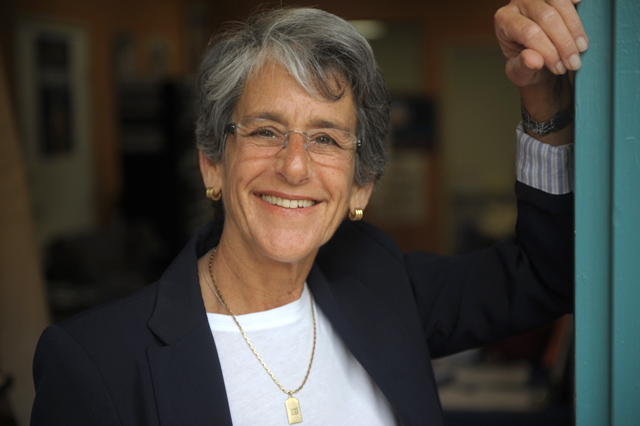
The biggest story of the year in state politics was simply this: Voters voted.
Turnout soared to its highest level in history for a midterm election, not only statewide — 64.5 percent of those registered — but also in Santa Barbara County — 72.5 percent. It powered the massive Blue Wave by which Democrats snatched seven House seats from Republicans and captured every statewide office and huge legislative majorities.
Some big winners and losers.
Party Animals
Winner: Independents. Decline to State voters really deserve a more elegant label, having grown in a decade from 20 to 28 percent of the registration roll — a 10-year increase of nearly 40 percent — to become the second largest voting bloc in California, and in Santa Barbara County (27 percent).
Loser: Republicans. It’s hard to overstate the depth of the California Republican Party’s collapse, displayed by its November debacle amid its decline to third-place size among voter groups; beneath the numbers, outgoing chair Jim Brulte noted, the big issue is clear — the GOP cannot “get significant numbers of votes from nonwhites.” No worries, Trump is here to help.
Congressional Contestants
Winner: Katie Hill. In the 25th Congressional District just south of S.B., the 31-year-old advocate for homeless people pulled off a huge upset by beating incumbent Steve Knight and then, along with New York’s Alexandria Ocasio-Cortez, swiftly established herself in Washington as an influential face of new-wave Dems.
Loser: Justin Fareed. On election night, the three-time local congressional loser held forth in TV interviews as if he’d scored a smashing victory instead of losing by, get this — 17 points (!!) — in final tallies of his race against Salud. Enough already; how can we miss you if you won’t go away?
Sacramento Solons
Winner: Hannah-Beth Jackson. She wasn’t on the ballot, but Senator HBJ produced one of the more remarkable legislative session records in memory, on issues from wildfire safety to women’s workplace rights, in between emceeing every Dem women’s function in town while bucking the local party with some shrewd independent endorsements.
Loser: Kevin de León. Jackson did make one very bad bet: Endorsing ex-state Senate President Kevin de León’s intraparty challenge of U.S. Senator Dianne Feinstein, a doomed-from-the-start bid in which he embarrassed himself by caterwauling and kvetching weakly as DiFi played a crucial role in D.C. dramas, and he finished with a tarnished political brand.
Regional Rumble
Winner: Bay Area. San Francisco expanded its claim as the political heart of California, with soon-to-be House Speaker Nancy Pelosi, U.S. senators Feinstein and Kamala Harris, and new Governor Gavin Newsom all coming out of Baghdad by the Bay, as just three statewide officers hail from L.A.
Loser: Central Valley. A few weeks ago, Bakersfield Rep. Kevin McCarthy was angling to become House Speaker but now is reduced to a Minority Leader trying to explain how he squandered seven home state seats, as the populous Central Valley, once a centerpiece of Republican competitiveness, keeps draining political influence.
Demographic Dust-up
Winner: Diversity. Newsom is the only white man elected statewide, as the winner’s circle features four women (Feinstein, Lt. Gov. Eleni Kounalakis, Controller Betty Yee, and Treasurer Fiona Ma), three Latinos (AG Xavier Becerra, Secretary of State Alex Padilla, and Insurance Commissioner Ricardo Lara), two Asian Americans (Yee and Ma), an openly gay man (Lara), and an African-American schools chief (Tony Thurmond).
Loser: White guys. Women candidates won every statewide race in which they ran, while seven of eight losers — five Republicans, No-Party Preference Insurance Commissioner wannabe Steve Poizner and Marshall Tuck in the nonpartisan State Superintendent of Public Instruction contest — all were white men.
Presidential Jockeying
Winner: California. As the most wide-open Democratic presidential nominating contest in decades looms, the decision to move up California’s 2020 primary from June to March ensures the 816 wannabes finally must treat the state as more than a cash withdrawal machine.
Loser: Iowa. The tiresome Iowa caucuses remain the first contest on the calendar. But with the Golden State already voting by mail then, who really cares?
See you in 2019.



